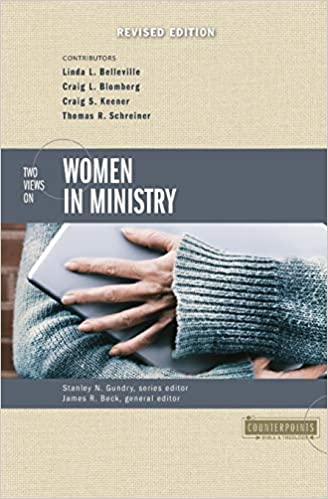There are various opinions about women in ministry. Some say women should never take leadership roles while others say they are allowed to do so. But it is vitally important to examine what the Bible actually says.
What is the role of women in the church? Should women be church leaders? Are women allowed to pastor a church? How do we interpret passages that say women should be silent in the church?
God’s Original Design
There are passages in the New Testament that might create questions and confusion regarding the place of women in the body of Christ. But before addressing those crucial issues, we must first understand God’s original design for man and woman.
In the creation story, it was clear that God created both man and woman in His image (Genesis 1:27). God created them to “co-rule” over creation (Genesis 1:28), meaning, they had equal authority and position. Man and woman were charged to carry out God’s ultimate rule and authority.
But when mankind (male and female) fell as a result of their sin and rebellion, they lost the privilege of rulership and lost their intimate fellowship with God (Genesis 3:14-24). Although Eve was not directly cursed, she was part of God’s general curse. She was told that “her desire should be for her husband and he shall rule over her” (Genesis 3:16).

Some believe that because the man was to “rule over” woman, God would only speak to or through a man from that time on. But Psalm 68:11 says, “The Lord gave the word; great was the company of those who proclaimed it.” The word company is the Hebrew word tsaba which can be either masculine or feminine gender, thus, representing men, women, or both.
The verse is then rightly translated, “The Lord gave the word; great was the mass of men and/or women organized for warfare that proclaimed it.”
Another important verse is Joel 2:28-29, which Peter repeated in his sermon on the Day of Pentecost in Acts 2:17-18. “And it shall come to pass afterward that I will pour out My Spirit on all flesh; your sons and your daughters shall prophesy… and also on My menservants and on My maidservants I will pour out My Spirit in those days.”
Women in the Old Testament
God desires to use both men and women to declare His wondrous works. Now, let us look at some examples of God speaking to and through women in the Old Testament.
Miriam
We first read of Miriam in Exodus 2:1-10 when Pharaoh commanded that all newborn Israelite males are to be killed. In Micah 6:4, she is mentioned along with her brothers Moses and Aaron as one of the three that led the Israelites out of Egyptian slavery and into deliverance.
This shows us the very important role of authority and influence given to the woman Miriam, by God. After the army of Pharaoh drowned in the waters of the Red Sea and the Israelites were safely in the desert, a great worship celebration took place.
“Then Miriam the prophetess, the sister of Aaron, took the timbrel in her hand; and all the women went out after her with timbrels and with dances. And Miriam answered them: ‘Sing to the Lord, for He has triumphed gloriously! The horse and its rider He has thrown into the sea’” (Exodus 15:20-21)!
Miriam’s prophetic anointing and musical gift made her an effective praise leader and prophetess. Like David some 500 years later, she sang the song of the Spirit with boldness.
Deborah
“Now Deborah, a prophetess, the wife of Lapidoth, was judging Israel at that time. And she would sit under the palm tree of Deborah between Ramah and Bethel in the mountains of Ephraim. And the children of Israel came up to her for judgment” (Judges 4:4-5).
Deborah held three important positions: wife, prophetess, and judge or ruler.
Through prophetic insight, the prophetess Deborah called for the Israelite General, Barak, to go out with only ten thousand men against the Canaanites. It is believed the Canaanites, led by General Sisera, had almost 100,000 men and 900 chariots of iron!
Deborah courageously accompanied General Barak into battle. With God’s power, the much-outnumbered Israelites defeated the Canaanites (Judges 4:6-24). Under Deborah’s leadership, the children of Israel were delivered from 20 years of oppression from this alien army. And she knew the source of victory was the Lord God!
Deborah was wise and courageous. She was mightily used by God in the dramatic deliverance of Israel from oppressors. And the people of Israel enjoyed 40 years of peace following her rule.
Why, then, does much of the Church today prevent this biblical kind of leadership from being released through women?
Esther
Though Queen Esther did not have a specific title of “ministry,” she was instrumental in saving the entire Jewish nation.
She was steadfastly committed to living out godly principles. She was wise in her influence on her husband. This allowed God to use her for His purpose and glory (read more about it in Esther 2-10).
Women in the New Testament
In ancient Israel, women were considered to be members of the “family of faith.” Men, as head of the family, presented the sacrifices and offerings on behalf of the entire family (Leviticus 1:2), but the wife could also be present.
Women attended the Feast of Tabernacles (Deuteronomy 16:14), the yearly Feast of the Lord (Judges 21:19-21), and the Festival of the New Moon (2 Kings 4:23). Women could enter most of the areas of worship.
But by the time of Christ, the view of women had changed. Jewish women were no longer active in Temple or synagogue worship. They were often put into inferior and subservient roles. But this was not something God said to do; rather this was human work.
Mary
Mary, the mother of Jesus, was a good and godly woman. She was a person of incredible faith in God. How else could she have responded in such a beautiful song of praise and trust after such a bewildering announcement (Luke 1:26-55)?
Mary truly did fulfill a ministry calling of the highest order, that of motherhood. What an incredible privilege God has given women in allowing them to bring forth life!
Moreover, the prophecy of Jesus’ coming (Genesis 3:15) and victory over Satan were enhanced by the fact that God would allow a woman, Mary, to be the vessel through which He gave to us a Savior!
Disclaimer: As an Amazon Associate, I may earn a commission when you use any links on this page to make a purchase, but at no additional cost to you.
Two Views on Women in Ministry (Counterpoints: Bible and Theology) by
This revised edition brings the exchange of ideas and perspectives into the traditional Counterpoints format. Each author states his or her case and is then critiqued by the other contributors.
The fair-minded, interactive Counterpoints forum allows you to compare and contrast the two different positions and form your own opinion concerning the practical and often deeply personal subject of women in ministry.
Anna
After seven years of marriage, Anna’s husband died and she dedicated the remainder of her life to serving in the Temple (Luke 2:36-37).
Anna had an important part in Jesus’ birth and dedication. God used her to confirm that Jesus truly was the expected Messiah-Deliverer for which Israel had waited.
Anna’s anointed ministry during her later years of life gives hope and promise to older women. God will always minister through sensitive, obedient and available vessels, regardless of age. The potential is great for those who are more mature to influence and shape future generations.
The Women at the Tomb
On that morning of Jesus’ resurrection, Mary Magdalene was at the tomb with Simon Peter and John. There were at least three of them at the tomb. The two men went into the tomb to see if Jesus was truly gone, as Mary Magdalene had said. When they saw He was gone, the discouraged men went home (John 20:5-10).
We don’t know why, but for some reason, the resurrected Christ didn’t appear to the two men while they were at the tomb. Jesus waited, and appeared to Mary Magdalene later as she wept outside the tomb (John 20:11-14).
Jesus spoke to Mary Magdalene. He gave her the very important job of proclaiming His resurrection (John 20:15-18). A woman was the first one told to preach the Good News that Jesus had risen from the dead. This charge proclaimed her equally worthy to give out the New Testament message of the Gospel of Jesus Christ to the world.
If Jesus gave the awesome job of preaching the first message of the Gospel to a woman, what then should our response be to women whom God has called to preach that same Gospel today?
Women in the Upper Room
Women were among those who had assembled for prayer to receive the promised power spoken of in Scripture (Acts 1:8). As that group of men and women prayed, “they were all filled with the Holy Spirit and began to speak with other tongues, as the Spirit gave them utterance” (Acts 2:4).
There was to be no question that all (both men and women) were empowered to do the work of ministry and evangelism. The power was NOT just for those in special positions of spiritual authority, but for ALL flesh!
Phoebe
In the church at Cenchrea, there was a woman Paul calls “a servant of the church” and “a helper of many” (Romans 16:1-2).
Some Bible versions translate the word “servant” (diakoneo) used in this verse as deaconess. Others use the word minister since this same Greek word is used in different places in Scripture as minister.
The historian Eusebius says that Phoebe oversaw two churches and traveled extensively in ministry. Many scholars believe it was Phoebe who carried the written book of Romans to the congregation in Rome.
Note: Though most of the spiritual leaders mentioned in the Bible are men, there are also many examples of anointed, consecrated, chosen women of God in both the Old and New Testaments. These women were never denied leadership roles or the right to function in a God-given gift or calling.
It is indeed a mystery why the place of women in ministry is a problem in so much of the Body of Christ.
What did Jesus Think of Women?
At a time when ministry teams that combined men and women were not allowed by the religious leaders, Jesus welcomed several women into His team of traveling ministries (Luke 8:1-3).
Also in Luke 8:43-48, we read of an outcast, unclean woman. She is poor, weak, and afraid. Yet Jesus responded to her faith, spoke to her as His daughter, and healed her!
Jesus encouraged Martha and Mary to sit at His feet and be discipled (Luke 10:38- 42). He considered them among His close friends (John 11:5).

Jesus’ respect and concern for women was something strikingly new. His attitude was very different from the other men’s attitudes of His time. His view of women was especially different from the Jewish religious leaders, the Pharisees, and Sadducees.
Through Christ’s redemptive work, all of the partitions have been broken down. Every believer, regardless of race, sex, or other distinction, now has equal access to God (Ephesians 2:14). In Jesus, all divisions have been smashed between Jew and Gentile, between men and women, and between priests and laymen (Revelation 1:6).
We are all one in Christ (Galatians 3:27-28), hallelujah!
Continue to part 2 here >>> The Role of women in the Church


